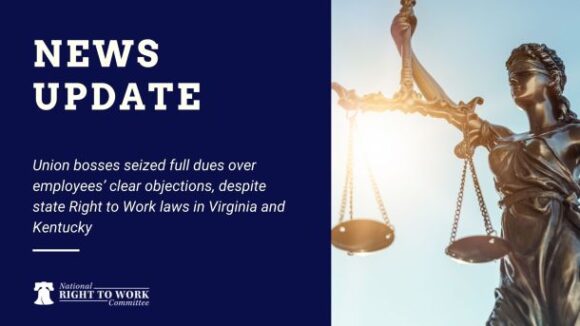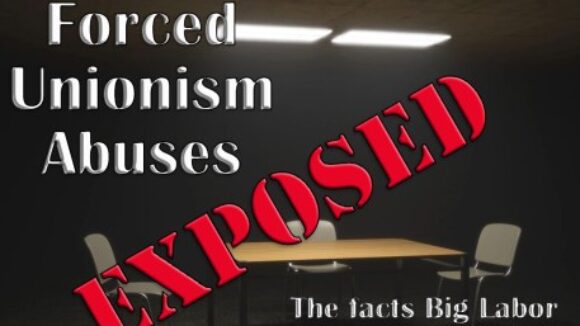‘People Have a Right to Make Their Own Choice’
Avelo employee Kim Howard believes all the firm’s flight attendants should get to vote on continued AFA rule. Credit: WTNH-TV (ABC,…
After trying to eliminate the secret ballot election in the workplace, Big Labor is now demanding a secret ballot election. From the Heritage Foundation:
Secret ballots protect voters from intimidation. As long as a vote remains private, no one can retaliate against individuals for voting the “wrong” way. The leadership of the union movement wants to replace secret ballot union elections with “card-check”—a system where workers would unionize by signing union cards in the presence of union organizers.
Publicly, union leaders insist that union organizers would never intimidate workers if they knew how they voted. But it turns out union bosses know full well that without secret ballots, union organizers would intimidate workers.
Two unions, the International Association of Machinists (IAM) and the Association of Flight Attendants–Communications Workers of America (AFA–CWA) are vying to represent workers at the newly merged United–Continental airlines.
The election will take place via secret ballot, which does not suit the AFA–CWA. It is pressuring employees to call in and register their votes with the union. IAM has cried foul. In a letter to AFA–CWA the IAM objected that:
How a Flight Attendant votes is a personal choice, and directing someone to reveal how they voted is a flagrant form of intimidation. Flight Attendants have already begun to register such complaints to the NMB…Flight Attendants are guaranteed by law that their votes are confidential. They should only reveal how or if they voted if they freely choose to do so…
If you value a Flight Attendant’s right to make a choice free from intimidation, then you should tell Flight Attendants that they do not have to “register” their votes with AFA-CWA or with the IAM, for that matter.
Quite so. The AFA–CFA has no right to know whether or how United–Continental’s employees voted. IAM knows that with that knowledge, its rival would pressure workers not to support it. Yet IAM enthusiastically endorses card-check. Union bosses understand that getting rid of secret ballots would expose workers to union intimidation—and they object only when that intimidation does not benefit them.

Avelo employee Kim Howard believes all the firm’s flight attendants should get to vote on continued AFA rule. Credit: WTNH-TV (ABC,…

Union bosses seized full dues over employees’ clear objections, despite state Right to Work laws in Virginia and Kentucky

When Right to Work advocates made their first valiant, although diffuse, efforts to stop the spread of government-imposed compulsory union membership…